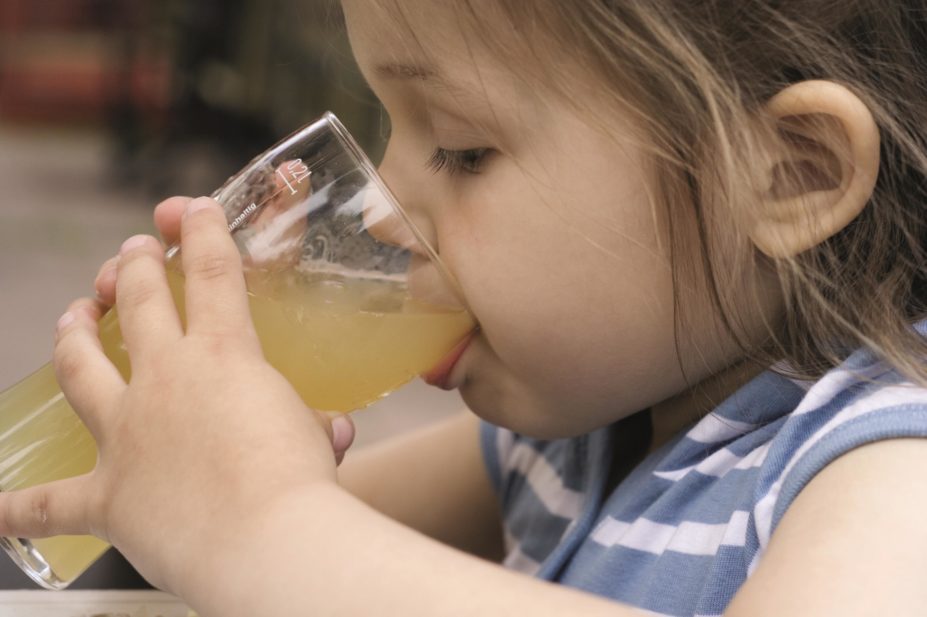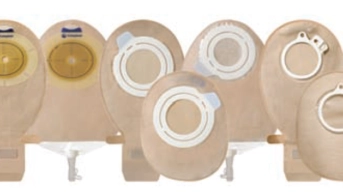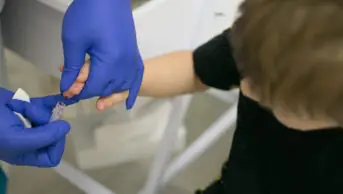
Shutterstock
Diluted apple juice can be used in high-income countries as an alternative to oral rehydration solution for children with mild gastroenteritis and minimal dehydration, a study published in JAMA
[1]
suggests.
Use of oral rehydration solution is generally recommended for children with or at risk of dehydration due to gastroenteritis. National guidance on the management of diarrhea and vomiting, such as the gastroenteritis guidelines from the National Institute for Health and Care Excellence, discourages drinking fruit juices and carbonated drinks, especially in children at increased risk of dehydration.
“The use of beverages with high sugar content has traditionally been discouraged because of their potential to induce an osmotic diarrhoea,” say the researchers from the University of Calgary in Canada. “However, studies evaluating this issue have found the effect to be minimal.”
The benefits of using oral rehydration solution in minimally dehydrated children are also unproven, the sachets are relatively expensive and some children find the solution unpalatable, according to the researchers.
The team assigned children aged from six months to five years old presenting at a paediatric emergency department with gastroenteritis and minimal dehydration to receive half-strength apple juice (n=323) or apple-flavoured oral rehydration solution (n=324). After discharge, the children given half-strength apple juice were offered their preferred fluids as desired, whereas those in the oral rehydration solution group continued to be given the solution to replace their lost fluids.
Fewer children treated with diluted apple juice experienced treatment failure in the next seven days than those who were given oral rehydration solution (16.7% versus 25.0%). Treatment was considered to have failed if the child needed intravenous rehydration, was admitted to hospital, had an unscheduled physician encounter, if they experienced protracted symptoms, 3% weight loss or significant dehydration.
Fewer children given diluted apple juice received intravenous rehydration (2.5% versus 9.0%), and hospitalisation rates and frequency of diarrhoea and vomiting were not significantly different between the two groups.
“In many high-income countries, the use of diluted apple juice and preferred fluids may be an appropriate alternative to electrolyte maintenance solution use in children with mild gastroenteritis and minimal dehydration,” the researchers conclude.
Rahul Chodhari, consultant paediatrician at the Royal College of Paediatrics and Child Health, says: “Potentially, this study offers additional support and therapy options for families to continue with rehydration of their children. Ordinary shop floor apple juice is very high in sugar and variable in content so more information is needed to standardise the formulation used in the study.
“Validation of the study by other researchers could potentially open up alternative treatment options,” he adds.
References
[1] Freedman S, Willan A, Boutis K et al. Effect of dilute apple juice and preferred fluids versus electrolyte maintenance solution on treatment failure among children with mild gastroenteritis: a randomized clinical trial. JAMA 2016. doi: 10.1001/jama.2016.5352

